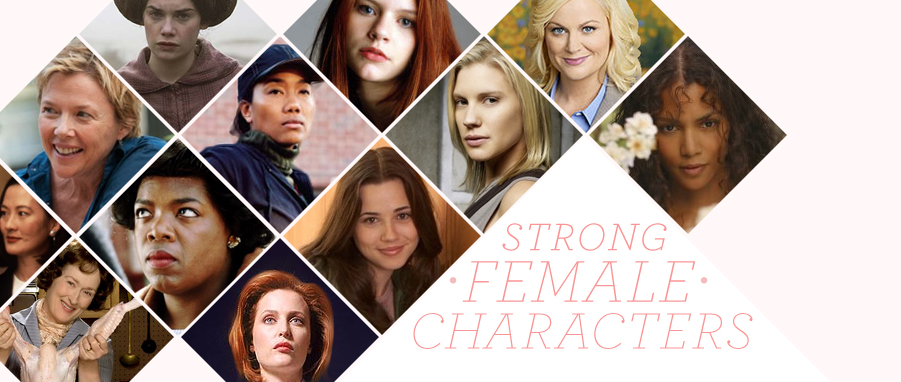Strong female characters—or even mediocre female characters—can be in short supply in Hollywood, on both the big and small screens. It’s something I’ve become more aware of as the years go by, and it's a bit dismaying. Recently, I’ve discovered that one of the best quick-view gauges by which to determine whether a film has adequate female representation is the Bechdel Test. Named for comic strip author Alison Bechdel, who with a friend devised the criteria back in the 1980s, the test has three really simple steps. First, are there two (named) female characters? Second, do they ever have a conversation with each other? Third, is their conversation about something other than a male character?
If the answer to these three questions is yes, it passes the test.
These three incredibly simple rules, amazingly, ruled out almost every single DVD on my shelf, including some of my favorite films. Eternal Sunshine of the Spotless Mind? Nope. The Lord of the Rings? Not even close. (And that is in spite of the fact that they proportionally really blew up Arwen’s role from Tolkien’s original text.) Ferris Bueller’s Day Off? No, because apparently Jeannie and her mom only talk about her troublesome brother Ferris.
It wasn't surprising to me that some of my more man-centric favorite films---The Good, the Bad & the Ugly, In Bruges, The Lord of the Rings---wouldn't pass. But even films with seemingly more positive and more frequent portrayals of women missed the mark in that they were still, ultimately, male-centric.
Blockbusters like the Batman series and The Avengers fail with flying colors (though there’s some dispute over whether The Dark Knight passes, as there is a scene where a female detective is forced at gunpoint to call another female character. Kind of a sad excuse for passing, if so). The only sure bet that a film will pass seemed to me to be if the lead character was a woman—but even that was called into question when I looked up The Little Mermaid (come on, Disney! Not surprising, I guess, when the character's sole motivation is marrying her prince).
The conclusion is that, despite all of the forward progress we’ve made, there are still some substantial holes in our cultural fabric when it comes to diverse and frequent media representations of women. Ensemble casts tend to be “rounded out” with one major female character; all-male leads segment off the female characters into the roles of wife, co-worker, mother, where they all exist only in relation to the male(s); or, as the test rightly points out, when the women do convene they end up talking about that male character.
Does your favorite movie pass the Bechdel test? Is it important to you that it does? Obviously it’s not necessary for every film, but it would be nice to see films outside of certain genres, or outside of the “chick flick” realm of films targeted directly at women, where two female characters talk to each other about things that concern them besides men.



